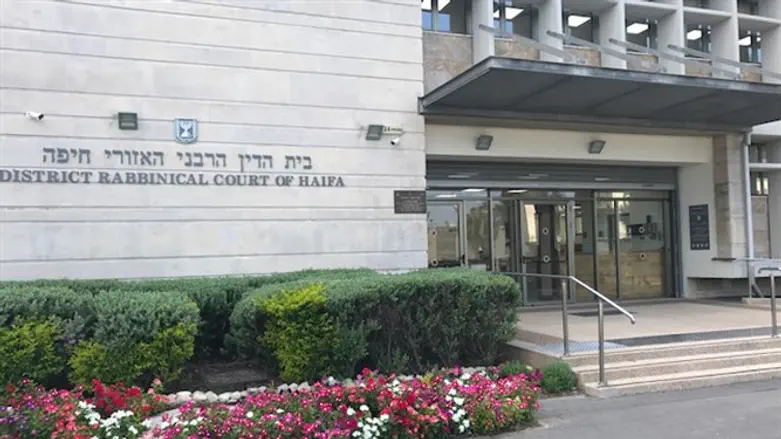
The Rabbinical Court will hear the case of a man who got married and divorced under a false identity.
The affair was revealed in the regional Rabbinical Court in Haifa when a woman told the court that she had met her husband and married him twice under Jewish law.
The first marriage took place illegally in Jerusalem. The second marriage was performed under the auspices of the local Rabbinical Court of Beit Shemesh.
According to her, her husband presented himself to the various authorities and to the rabbis under his brother's name. He stole the identity card of his brother, an Israeli who lives in the United States, in order to evade legal obligations and fines, as well as to avoid disclosing a disease he contracted while abroad.
Thus, the brother, who is single and lives in the United States, was registered in Israel with the Interior Ministry as if he were married and had children. He was also wanted by the police for offenses he did not commit, for debts he did not have, and by the Health Ministry as a carrier of a contagious disease.
The man who stole his brother's identity signed the divorce papers on his behalf, but since he knows the laws of divorce under Jewish law, he informed the court that he was also known as his real name when asked if he had any nicknames. His father and another committee cooperated and said that he was also known by his real name.
Members of the Regional Rabbinical Court in Haifa, including Av Beit Din Rabbi Daniel Edri, Rabbi Ben Tzion Hacohen Rabin, and Rabbi Elad Eli discussed the marriage contract and the issue of the parentage of the couple's two children. Following the discussion the court published its decision, based on the teachings of a variety of halakhic sources, including the Shulchan Aruch and the writings of former Sephardic Chief Rabbi Ovadia Yosef.
In the end, the court decided to instruct the Interior Ministry to register the woman as her husband's ex-wife by his real name and to cancel his brother's registration as a divorced man with children and to register the children as the children of their real father and not of his unmarried brother, and the Health Ministry and other authorities to update their records to the correct brother.
The judges also ruled that the divorce granted to the woman was valid despite the identity theft, and that there was no reason to seek another divorce. The court will hold a separate discussion on the husband's liability for the identity theft.